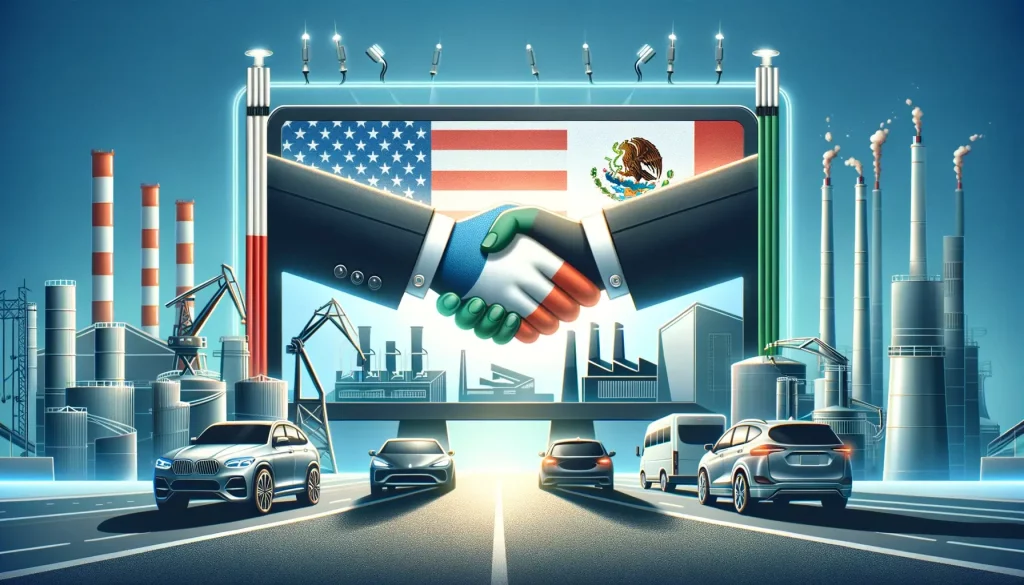In Mexico City, a significant decision was made that altered the course for foreign electric vehicle (EV) companies, particularly from China.
In a key meeting earlier this year, Mexican officials announced they would stop offering special incentives, like tax breaks and cheap land, to these companies.
This move, heavily influenced by the United States, marks a significant change in how Mexico handles international business in the auto sector.

U.S. Pressure Leads Mexico to Withdraw Chinese EV Incentives (PDF)
Unpacking the Decision
Mexico’s Policy Change Explained
For years, Mexico has used incentives to attract car manufacturers, which helped boost its economy by creating jobs and increasing technological advancements.
These perks included tax reliefs and land deals that were especially appealing to companies looking to build new factories.
The Role of U.S. Pressure
The United States, one of Mexico’s main trading partners, has raised concerns about these incentives. The U.S. argues that they allow Chinese companies to produce cars cheaply and sell them at lower prices in the U.S., hurting American car makers.
This led to the U.S. urging Mexico to reconsider its strategy to not undermine the American automotive industry.
Economic Effects
Impact on the Mexican Market
Below is a table showing how prevalent Chinese EV makers are in Mexico and what might change without the incentives:
| Chinese EV Brands | Market Share in Mexico | Expected Investments |
|---|---|---|
| BYD Co | 15% | $500 million |
| SAIC Motor | 10% | $300 million |
| Geely | 8% | $400 million |
The withdrawal of these incentives might discourage these and other companies from investing further, potentially slowing down the growth of Mexico’s EV market.
Broader Economic Implications
Losing these investments could lead to fewer jobs and slower growth in technology sectors in the short term.
However, it might also encourage companies from North America and Europe to expand their operations in Mexico, helping to balance out the impact.
Political and Strategic Implications
Navigating Trade Relationship
Mexico is in a tricky situation, having to manage its relationships with both the U.S. and China. The decision to end incentives is part of a larger strategy to keep good trade terms with the U.S., especially as discussions around the renewal of the North American trade agreement approach in 2026.
Strategic Thinking in Mexican Trade
By stopping these incentives, Mexico might be trying to show the U.S. that it is a reliable partner, which could help during future trade talks.
This is a strategic move to ensure stronger economic ties with the U.S., which is crucial for Mexico’s larger economic interests.
The Road Ahead for Global Trade
This decision by Mexico, driven by U.S. concerns, is a turning point for how trade and investments will be handled in North America’s auto industry.
It shows how international politics can influence economic decisions. As we see these changes unfold, it raises the question: will other countries adjust their policies too when it comes to foreign investments in important industries?





